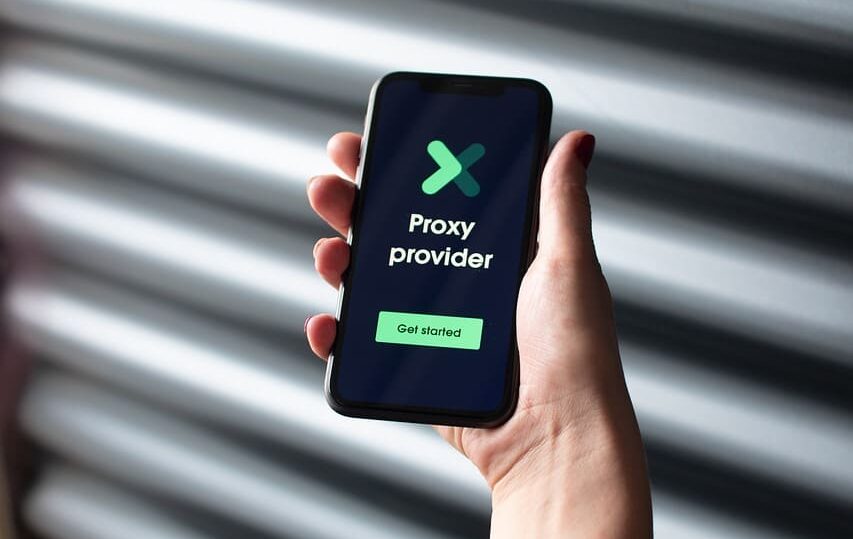
The modern realities of digital marketing, traffic arbitrage, and multi-accounting require effective tools for masking digital fingerprints. Anti-detection browsers have become indispensable tools for those who work with dozens or hundreds of accounts simultaneously. Among the many solutions on the market, two flagships stand out: AdsPower and Octo Browser.
We will conduct a detailed comparison — AdsPower vs. Octo Browser — to find out what their key differences are, what their strengths and weaknesses are, and which one is right for your tasks.
What are AdsPower and Octo Browser?
AdsPower is a cloud-based anti-detection browser focused on teamwork and automation. It is especially popular among SMM specialists, arbitrageurs, and e-commerce entrepreneurs who run large-scale campaigns with dozens of accounts. It supports integration with various APIs, offers tools for auto-start, and provides detailed statistics for each profile.
Octo Browser, in turn, focuses on maximum anonymity, local data storage, and flexible profile settings. This browser is preferred by those who value security and customization. Octo implements strict protection against WebRTC, Canvas, and other digital metrics leaks. It is often chosen for more sensitive projects, including working with crypto and gray schemes.
Next, let’s take a closer look at each of the browsers — their features, advantages, and possible limitations.
AdsPower: advantages and features
AdsPower positions itself as a powerful tool for teamwork and automating tasks related to multi-accounting. One of its key advantages is its cloud architecture: all profiles and settings are stored in the cloud, allowing you to quickly switch between devices, share access with colleagues, and centrally manage data.
The interface is intuitive even for beginners. Built-in automation features such as script auto-start, bulk proxy management, and profile import and export make AdsPower particularly convenient for large-scale projects. Support for popular proxy formats (HTTP(S), SOCKS5) is also implemented, which simplifies connection proxies for anti-detection browsers and allows you to flexibly manage the network configuration of each account.
The AdsPower API deserves special attention — it opens up opportunities for full automation, including creating, cloning, and deleting profiles, launching browsers, and working with cookies.
It’s no surprise that in the battle between AdsPower and Octo Browser, this product comes out on top when it comes to teamwork, cloud solutions, and automating routine processes.

Octo Browser: advantages and features
Octo Browser is a desktop solution focused primarily on security, privacy, and control. Unlike cloud alternatives, all data is stored locally, which significantly reduces the risk of information leaks and makes the product ideal for individual use or sensitive projects.
One of Octo’s main advantages is its sophisticated digital fingerprint spoofing system: Canvas, WebGL, AudioContext, fonts, language, time zone, and even mouse behavior can all be finely tuned to suit a specific task. As a result, the browser allows you to create highly realistic profiles that are difficult to distinguish from real users.
Octo Browser also offers a convenient proxy management system, including built-in checks and automatic distribution. Integration with popular providers allows you to quickly connect proxies for anti-detection browsers, saving time and reducing the likelihood of configuration errors.
Comparison of AdsPower and Octo Browser features
When choosing between two flagship anti-detection solutions, it is important to rely not only on reputation, but also on a comparison of the features of AdsPower and Octo Browser. Both browsers aim to solve similar problems, but they do so in different ways. Below, we will look at the key aspects that will help you decide which is better: AdsPower or Octo.
Ease of use and management
In terms of interface, AdsPower offers a visually light, minimalistic environment adapted to working with a large number of profiles. Users have access to sorting, grouping, shortcuts, and search — all intuitive and uncluttered. This is especially convenient when working in a team: different access levels and centralized profile management save time and resources.
Octo Browser, on the other hand, focuses on flexibility. The interface is more technical and geared toward experienced users. Settings are divided into categories, and an advanced mode for editing fingerprint parameters is available. This solution takes a little longer to learn, but in return offers fine-grained control and, as a result, better masking.
If you need a quick start and ease of management, especially in a team, AdsPower wins. If you are a power user and like to tinker with configuration details, Octo will be more to your liking.
Multi-account and proxy support
Both AdsPower and Octo handle multi-accounting well, but they do it differently. AdsPower lets you launch dozens of profiles in a couple of clicks, including automated scripts. Proxy support is also top-notch: fast and anonymous mobile proxies, bulk addition, validity checks — all of this is already built into the system.
Octo is not far behind. Profiles are isolated and run independently, ensuring a high level of anonymity. Proxies can be set manually or through external services. For arbitrageurs who work with mobile traffic, Octo is compatible with mobile 4G and 5G proxies via API — which is important when bypassing anti-fraud systems.
The difference between the AdsPower and Octo APIs deserves special attention. The AdsPower API is more powerful — it is a full-fledged tool for automating tasks, from creating profiles to managing sessions and cookies. The Octo API is currently limited and is more suitable for basic operations.
![]()
Conclusion: AdsPower vs Octo Browser — which one should you choose?
There is no universal answer to the question “AdsPower or Octo Browser — which one should you choose?” It all depends on your tasks, goals, and level of technical expertise.
If you work in a team and are looking for a stable cloud solution with a powerful API, flexible management, and automation support, AdsPower is an excellent choice. This is especially true if your work requires scalability and stable integration with other tools.
Octo Browser is more suitable for those who prefer local data storage, the highest level of customization, and complete control over every profile parameter. This solution is for those who value security and accurate simulation of real user behavior.
In summary, the comparison between AdsPower and Octo Browser comes down to a matter of priorities: cloud and automation or local customization and protection. Regardless of your choice, both tools perform their tasks well, especially when paired with a high-quality proxy, such as fast and anonymous mobile proxies that provide the highest level of anonymity.









